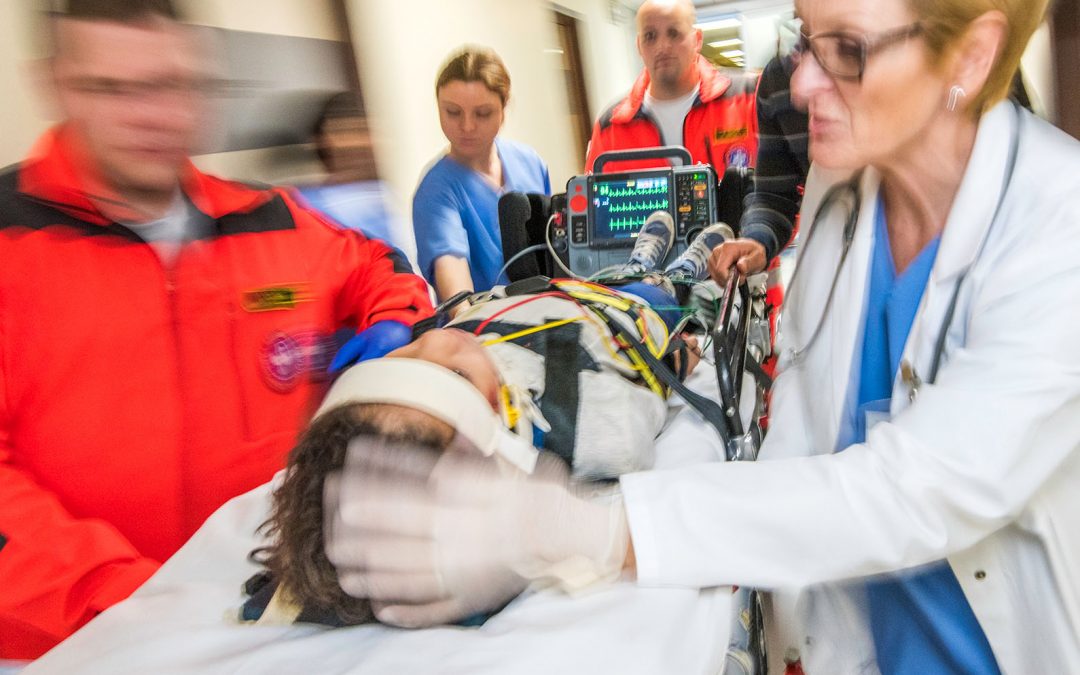The Prevalence and Impact of Dosing Errors
Pediatric dosing errors in prehospital care are alarmingly widespread. According to a study by Hoyle et al.1, medication dosing errors occurred in 34.7% of pediatric patients treated by EMS professionals. These errors often resulted from incorrect weight estimations. Another study by Hoyle et al.2 highlighted that traditional methods for estimating pediatric weights were frequently inaccurate, contributing to significant dosing errors in 142 simulated prehospital pediatric patient encounters.
Factors Contributing to Dosing Errors
Inaccurate weight estimation is a major contributor to dosing errors. EMS providers often rely on age-based formulas or visual estimates, both of which can be highly inaccurate. The high-pressure environment of emergency care can lead to rushed calculations and mistakes, exacerbating the problem. Additionally, the lack of accurate measurement tools has contributed to the likelihood of errors.
Hinckley Medical’s Innovative Solutions
Hinckley Medical recently developed the OneWeight EMS gurney scale and the OneDose protocol-workflow app to address these critical issues. The OneWeight scale provides precise weight data, reducing the need for estimates and ensuring accurate medication dosing. It easily attaches to ambulance gurneys, allowing for quick weight measurement without disrupting patient transport. Built for the rugged prehospital environment, the scale ensures reliable performance under demanding conditions.
Complementing the OneWeight scale, Hinckley Medical’s OneDose app connects wirelessly and automates dosage calculations based on a patient’s actual weight, significantly reducing the risk of errors. Its user-friendly interface facilitates quick medication administration, even in high-pressure situations. The app is easily tailored with local-agency protocols, providing step-by-step information using specific clinical guidelines. It also offers in-app documentation, providing valuable insights into historical data to help refine strategies and training programs.
Impact on Pediatric Care
The combined use of the OneWeight scale and OneDose app can significantly improve pediatric care in prehospital settings and is being rapidly adopted by EMS organizations throughout the country. These tools ensure precise weight measurement and accurate dosage calculations, drastically reducing the risk of medication errors. By automating critical tasks, these innovations alleviate many of the cognitive loads and stresses on EMS providers, allowing them to focus more on patient needs. With integration of these tools into prehospital protocols, EMS providers can deliver more reliable and effective care, ultimately saving lives.
Sources:
1Hoyle, J. D., Davis, A. T., Putman, K. K., Trytko, J. A., & Fales, W. D. (2012). Medication Dosing Errors in Pediatric Patients Treated by Emergency Medical Services. Prehospital Emergency Care, 16(1), 59-66.
2Hoyle, J. D., Ekblad, G., Woodwyk, A., Brandt, R., Fales, B., & Lammers, R. L. (2022). Methods Used to Obtain Pediatric Patient Weights, Their Accuracy and Associated Drug Dosing Errors in 142 Simulated Prehospital Pediatric Patient Encounters. Prehospital Emergency Care, 26(4), 511-518. DOI: 10.1080/10903127.2021.1944407

